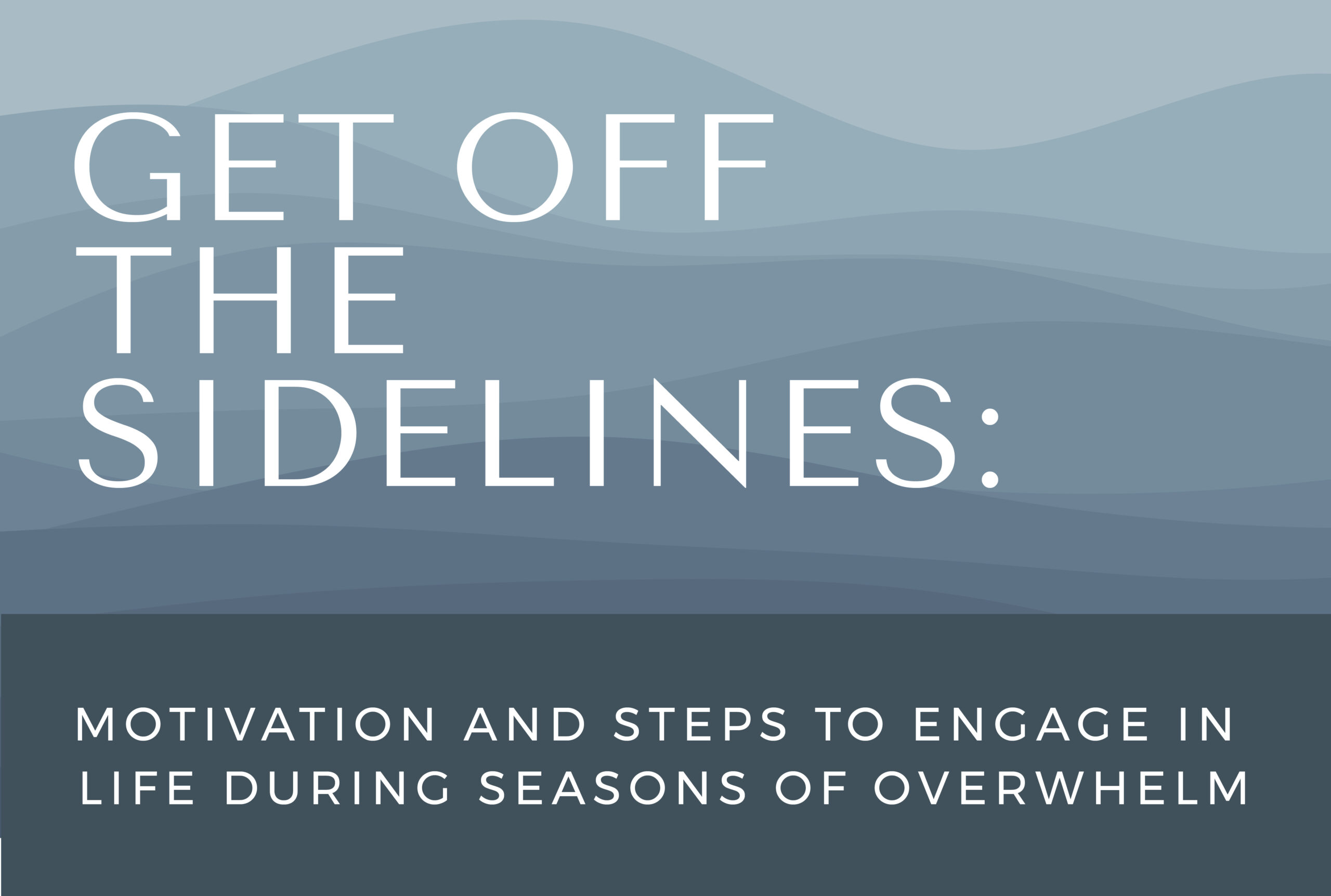
Get Off the Sidelines: Motivation and Steps to Engage in Life During Seasons of Overwhelm
Inspired by this month’s featured episode of the Moms Making Six Figures Podcast where I sat down with Elma Dzanic –owner of Fina Beauty and Nail Educator, mother of two, and wife to an overly supportive husband 😉 —about her journey as a business owner. Elma navigated the detour of the unplanned arrival of her firstborn, while starting a business and building a home with undeniable strength and an unwillingness to throw in the towel. And through it all, learned that by putting her children first, she is building a business that allows her to have the best of both worlds (with a healthy acknowledgement of all the help and support it takes from her village).
If you’ve ever struggled with a season of overwhelm and you feel like you are watching every aspect of your life zoom by while you remain stuck on the sidelines, keep reading to overcome the paralysis caused by perceived failures and find the motivation to begin taking steps toward your dreams once again.
__________________________________________________________________________________________
Ground Yourself in the Moment.
One of the greatest challenges of seasons of overwhelm is that we feel entirely stuck and incapable of making progress. We often find ourselves here because of our cyclical thoughts that hyper-fixate on the future or the past—ultimately paralyzing us in the present.
When you begin to feel these intrusive thoughts taking hold and keeping you sidelined, complete this exercise to stop the spiral and to ground you in the reality of the tangible moment you are in.
Begin by connecting to your breath and activating your Parasympathetic Nervous system for 1—2 minutes.
- Breathe deeply through your nose.
- Exhale longer than you inhale.
- Breathe through your belly instead of your chest.
- Google “parasympathetic exhale” for more information!
Next, complete the 5 Senses Grounding Technique described below:
- Identify 5 things you can see and really take them in.
- Identify 4 things you can feel. The seat under you is a great start!
- Identify 3 noises you can hear.
- Identify 2 things you can smell.
- Identify 1 thing you can taste.*
*Taste is sometimes hard to identify so you can substitute that by thinking of your favorite thing to taste!
Turn Off Your Brain by Tuning into Your Body.
We know firsthand that the last thing you want to do —or that you have time for— is moving your body when you’re depressed, anxious or stressed. Rather than feeding your brain what it’s craving, it’s time to feed it what it actually needs.
According to the Centers for Disease Control and Prevention (CDC), getting regular physical activity can make you less likely to develop depression. Exercising three to five times weekly for 30 to 60 minutes can provide mental health benefits because exercise is a good way to get “out of your head” and focus on moment-to-moment sensations, such as your breathing and movements.
If you can get outside for that movement—even better. Vitamin D helps to increase the body’s serotonin—the hormone key to stabilizing mood, increasing happiness and improving sleep.
Start Making Decisions Again.
Depression is often linked to an inability for individuals to trust themselves—we begin to lose confidence over time by being passive and easy going. But when we consistently defer our needs to put others first, we begin to erode our ability to trust our own judgement.
Start taking action rather than ruminating on every decision—decide once and stick to it from seemingly small choices like what to eat for your next meal to build up to larger decisions like implementing a new schedule that will further motivate you to get off the sidelines.
Make Your Bed.
We said it. Brush your teeth, take a shower and make your bed. These small actions train your brain to be an active participant in life. At the end of the day if all you have done is taken care of these basic acts of self-care, you have trained your brain to successfully initiate and complete tasks building confidence and energy to begin adding more as time continues.
According to research, “Making the bed is about setting an intention to do the little things that bring about an orderly, thoughtful, responsible, balanced, or successful life. In addition to providing a quick sense of daily accomplishment, some people find making the bed calming as well.”
A hidden bonus of making your bed? It’s that much more difficult to crawl back under those covers and “mess-up” your progress.
Start Delegating.
Once you’ve silenced the spiral of overwhelm, it’s time to identify what key triggers you can outsource to others. In order to ‘stay in the game’, it’s important to recognize you can’t do it all on your own—that expectation is likely what got you here in the first place.
Maybe you need your spouse to pick the kids up one day a week so you can go on a walk, maybe the answer lies in hiring a meal service so you can spend time being present with your children and fuel your body with nutritious foods, and maybe you need to hire an assistant to manage your business communication so you can keep your focus on more pressing tasks at hand.
Delegation is key to growth and to getting back in the driver’s seat. Frequent check-ins with yourself and your support system will help you to maintain your momentum.
For Elma, it was a conversation with her brother-in-law that helped her to see that detours were not failures, that as long as she hadn’t thrown in the towel there was still a way forward. In seasons of overwhelm, it is imperative that we learn to pivot and that we continue to show up.


Post a comment:
You must be logged in to post a comment.